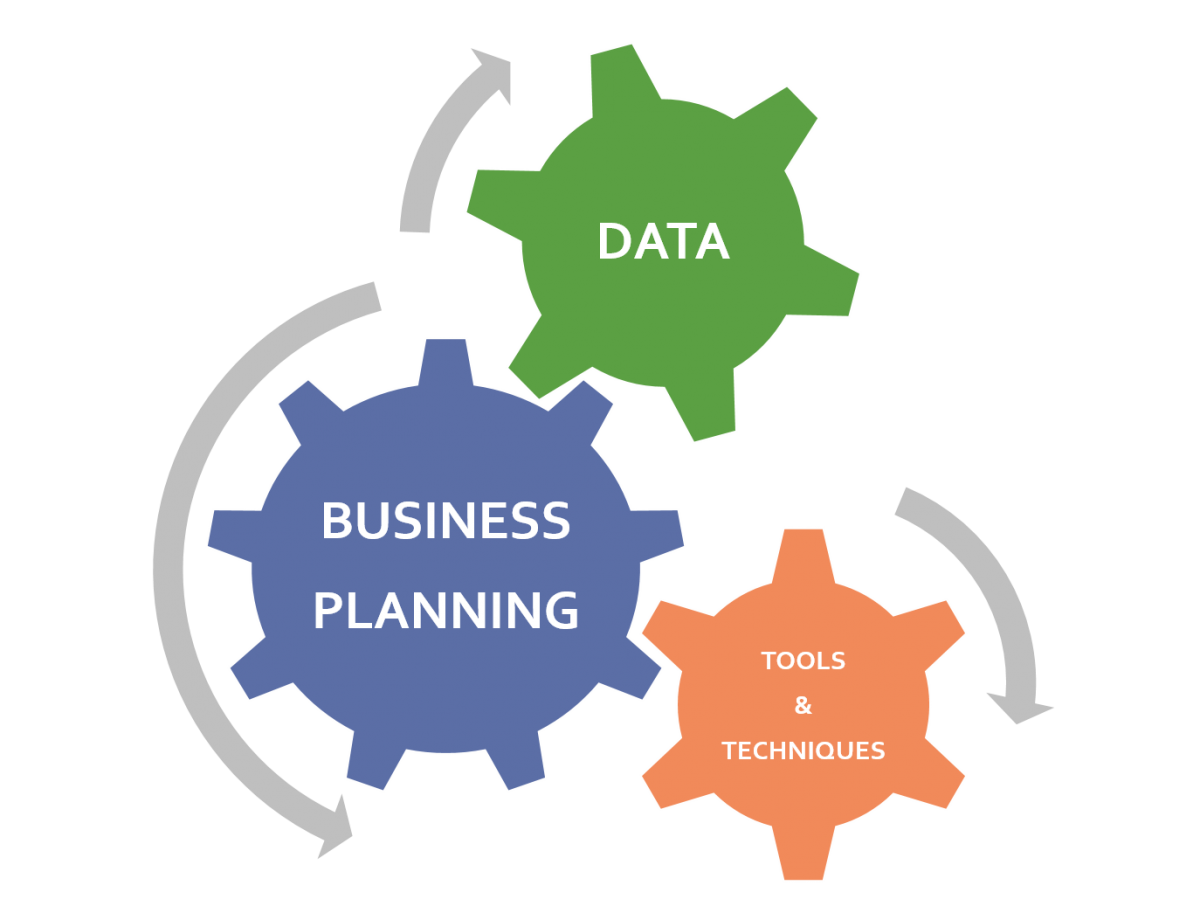As an FP&A professional, you deal with data. Your data travels a long way from its...
 Very often financial and business planning professional ask the same question: which software do I need to improve my business and financial planning and analysis capabilities? The answer is not straightforward.
Very often financial and business planning professional ask the same question: which software do I need to improve my business and financial planning and analysis capabilities? The answer is not straightforward.
Business planning, data and technology are three business capabilities of any business you deal with. How do they relate to each other? Is one of them more important than the others? As a data management professional, I am most curious about the role data plays in any business process, and I would like to show you what key role it plays in this triad.
The main challenges with the data, business planning and technology
A couple of months ago I came across a survey by FP&A Trends where 300 FP&A leaders worldwide were asked about the biggest challenges in their area of expertise. The results of the survey were presented in the form of 7 main insights. For me, the most striking one number 7: ‘FP&A Leaders want better data, better technology, more accountability” [1]. This insight gave me a push to think about the dilemma of interdependencies between data, business planning and technology.
In my e-book ‘Make Data Work for You’ [2] I have presented the relationship between these three elements in the form of a clockwork:

This model covers the main areas of your daily business planning activities. But what about making improvements in your operations? Assume one day you could get all the resources you need. Where do you start?
Data is the key
To get an answer to this question, let us see how this clock is ticking. Being a business planning professional, your main objective is to provide information to decision-makers at different levels of your company. To be able to do that, you need data input from different sources, internal as well as external. Most of the data circulating in your company flow to your table. You apply different business planning techniques to process the data and deliver meaningful information. You use different planning and analysis techniques, perhaps using Excel as your main tool. You also might opt for an advanced reporting software for planning, budgeting and forecasting to ensure efficiency and correctness of your job. In any case, you produce information to share with your business stakeholders. The quality of Information that you provide will depend most of all on the data you got to work with. Techniques and tooling only support your efforts in converting raw data into meaningful information. ‘Garbage in, garbage out, as they say.
So, there you have your answer: always start with data! Easy to say, you might think. Of course, you might object, as this is not your responsibility, or it requires a lot of efforts and resources. And you will be right to a certain extent, but it is certainly worth it. Let me sum up the benefits you will get when working with the right data.
Your main benefits from proper managing of data
- Your job will become more fun. I have worked in Finance for many years. I know how many hours your colleagues spend on cleaning data they get from other departments. Endless discussions with data providers and as a result a lot of hours spent on a job which is, in fact, not yours to do. I am not even going to start on manual reconciliations of different reports set up manually in Excel.
The day you get data of good quality to work with, will be a turning point in your professional life. You will be able to spend most of your time on high-value activities like analyzing data, playing with different forecasting scenarios, discussing business opportunities with your stakeholders. Is this not what you really want? Simply do what you are good at, and interested in, enjoy seeing actual results and become an influential business partner.
- Room for further professional development. A lot of fancy technologies like predictive and prescriptive analytics are coming up nowadays. Some companies have already started implementing them. You and your company will definitely benefit from these developments. You have new insights in data and know how to deliver better information to support decision-makers. You can develop your professional skills.
- Put your company in a stronger position on the market, and ensure your professional future. Talks of ‘data-driven businesses’ circulate the media. Being ‘data-driven’ can have different interpretations. One of the most prevalent ones is that data-driven business builds a competitive advantage by improving and accelerating its decision-making process. It is reasonable to assume that data is the center of this concept. As you are at the front line when it comes to the support of the decision-making process, data and proper managing of data should be your vital professional interest.
Do these reasons inspire you to start thinking about an action plan?
You are dealing with three different business capabilities in your daily job. Information and data delivery are the first areas that require your action on your way to improving business planning. Business planning techniques are tooling that empower you to process raw data into meaningful information. Software supports you in data processing and makes your job more efficient.
In the next blog, we will discuss what data management is exactly, and what your role you can play in its establishment.
The article was first published in Unit 4 Prevero Blog
Notes
[1] – ‘ Defining the Evolution of FP&A: Benchmarks, Challenges and Opportunities‘ by Prophix and FP&A Trends, 2017. [https://www.prophix.com/resource/defining-the-evolution-of-fpa/]
[2] – ‘Make Data Work for You’ by Data Crossroads, 2017. [https://datacrossroads.nl/data-management-guide/]
Subscribe to
FP&A Trends Digest

We will regularly update you on the latest trends and developments in FP&A. Take the opportunity to have articles written by finance thought leaders delivered directly to your inbox; watch compelling webinars; connect with like-minded professionals; and become a part of our global community.




